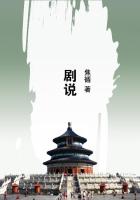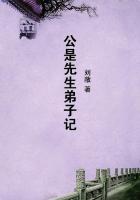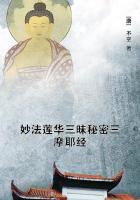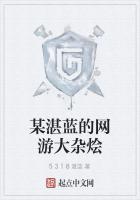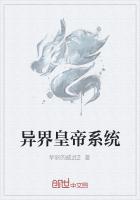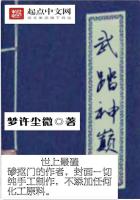A thing Graham had already learnt, and which he found very hard to imagine, was that nearly all the towns in the country, and almost all the villages, had disappeared. Here and there only, he understood, some gigantic hotel-like edifice stood amid square miles of some single cultivation and preserved the name of a town--as Bournemouth, Wareham, or Swanage. Yet the officer had speedily convinced him how inevitable such a change had been. The old order had dotted the country with farmhouses, and every two or three miles was the ruling landlord's estate, and the place of the inn and cobbler, the grocer's shop and church--the village. Every eight miles or so was the country town, where lawyer, corn merchant, wool-stapler, saddler, veterinary surgeon, doctor, draper, milliner and so forth lived. Every eight miles--simply because that eight mile marketing journey, four there and back, was as much as was comfortable for the farmer. But directly the railways came into play, and after them the light railways, and all the swift new motor cars that had replaced waggons and horses, and so soon as the high roads began to be made of wood, and rubber, and Eadhamite, and all sorts of elastic durable substances--the necessity of having such frequent market towns disappeared.
And the big towns grew. They drew the worker with the gravitational force of seemingly endless work, the employer with their suggestions of an infinite ocean of labour.
And as the standard of comfort rose, as the complexity of the mechanism of living increased life in the country had become more and more costly, or narrow and impossible. The disappearance of vicar and squire, the extinction of the general practitioner by the city specialist, had robbed the village of its last touch of culture. After telephone, kinematograph and phonograph had replaced newspaper, book, schoolmaster, and letter, to live outside the range of the electric cables was to live an isolated savage. In the country were neither means of being clothed nor fed (according to the refined conceptions of the time), no efficient doctors for an emergency, no company and no pursuits.
Moreover, mechanical appliances in agriculture made one engineer the equivalent of thirty labourers.
So, inverting the condition of the city clerk in the days when London was scarce inhabitable because of the coaly foulness of its air, the labourers now came hurrying by road or air to the city and its life and delights at night to leave it again in the morning.
The city had swallowed up humanity; man had entered upon a new stage in his development. First had come the nomad, the hunter, then had followed the agriculturist of the agricultural state, whose towns and cities and ports were but the headquarters and markets of the countryside. And now, logical consequence of an epoch of invention, was this huge new aggregation of men. Save London, there were only four other cities in Britain -- Edinburgh, Portsmouth, Manchester and Shrewsbury. Such things as these, ****** statements of fact though they were to contemporary men, strained Graham's imagination to picture. And when he glanced "over beyond there" at the strange things that existed on the Continent, it failed him altogether.
He had a vision of city beyond city, cities on great plains, cities beside great rivers, vast cities along the sea margin, cities girdled by snowy mountains. Over a great part of the earth the English tongue was spoken; taken together with its Spanish American and Hindoo and Negro and "Pidgin" dialects, it was the everyday language of two-thirds of the people of the earth. On the Continent, save as remote and curious survivals, three other languages alone held sway--German, which reached to Antioch and Genoa and jostled Spanish-English at Gdiz, a Gallicised Russian which met the Indian English in Persia and Kurdistan and the "Pidgin" English in Pekin, and French still clear and brilliant, the language of lucidity, which shared the Mediterranean with the Indian English and German and reached through a negro dialect to the Congo.
And everywhere now, through the city-set earth, save in the administered "black belt" territories of the tropics, the same cosmopolitan social organisatior prevailed, and everywhere from Pole to Equator his property and his responsibilities extended. The whole world was civilised; the whole world dwelt in cities;the whole world was property. Over the British Empire and throughout America his ownership was scarcely disguised, Congress and Parliament were usually regarded as antique, curious gatherings. And even in the two Empires of Russia and Germany, the influence of his wealth was conceivably of enormous weight. There, of course, came problems--possibilities, but, uplifted as he was, even Russia and Germany seemed sufficiently remote. And of the quality of the black belt administration, and of what that might mean for him he thought, after the fashion of his former days, not at all. That it should hang like a threat over the spacious vision before him could not enter his nineteenth century mind. But his mind turned at once from the scenery to the thought of a vanished dread.
"What of the yellow peril?" he asked and Asano made him explain. The Chinese spectre had vanished.
Chinaman and European were at peace. The twentieth century had discovered with reluctant certainty that the average Chinaman was as civilised, more moral, and far more intelligent than the average European serf, and had repeated on a gigantic scale the fraternisation of Scot and Englishman that happened in the seventeenth century. As Asano put it; "They thought it over. They found we were white men after all."Graham turned again to the view and his thoughts took a new direction.
Out of the dim south-west, glittering and strange, voluptuous, and in some way terrible, shone those Pleasure Cities, of which the kinematograph-phonograph and the old man in the street had spoken.

